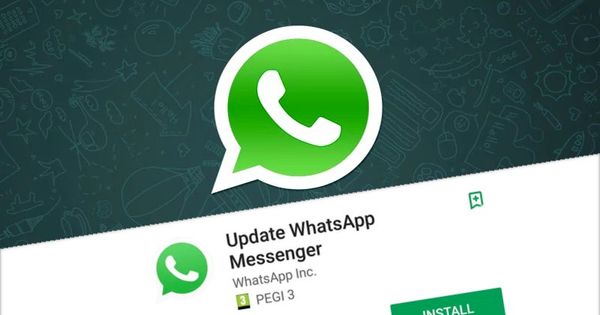Fake WhatsApp app tricked over a million users

Google Play has suffered another failure, as over one million users have been duped into downloading a fake version of WhatsApp made available in the official Android app store.
The bogus WhatsApp application was spotted late last week on Google Play, looking for all the world like the real thing, and appearing to be developed by WhatsApp Inc, the messaging app’s genuine developers.

So, how did the scammers – keen to earn advertising revenue by tricking users into downloading their ad-riddled version of the popular messaging service – manage to make it look like their bogus edition really did come from WhatsApp Inc.
For the answer we can blame a single character, a Unicode character that looks just like whitespace.
You see, the developer wasn’t “WhatsApp Inc.” but rather “WhatsApp Inc. ” (with what appears to be a trailing blank space).
And although Google Play would be smart enough to strip regular trailing blank space characters (U+0020) normally, it seemingly can be outfoxed if the extra character is an identical-looking Unicode character.

The “%C2%A0” you see in that screenshot translates in UTF-8 to 00A0, which is the Unicode for a non-breaking space.
Although Google has, over the years, improved its vetting systems to automatically detect rogue apps attempting to enter the official Android app store, and even introduced human reviewers, it still seems to fall short time and time again.
A glance at the security headlines reveals plenty of examples of malicious Android apps lurking in the Google Play store.
Despite Google Play’s woes, the reality is that the official store still remains a safer source for you Android apps than third-party unofficial alternatives. It’s just that you can’t be certain that apps you download will be what they claim to be.
Always be on your guard, and if you see an app breaking the rules, you can report it to Google Play via this online form.
tags
Author
Graham Cluley is an award-winning security blogger, researcher and public speaker. He has been working in the computer security industry since the early 1990s.
View all postsRight now Top posts
Outpacing Cyberthreats: Bitdefender Together with Scuderia Ferrari HP in 2025
March 12, 2025
Streamjacking Scams On YouTube Leverage CS2 Pro Player Championships to Defraud Gamers
February 20, 2025
How to Identify and Protect Yourself from Gaming Laptop Scams
February 11, 2025
Your Device ‘Fingerprint’ Will Go to Advertisers Starting February 2025
December 24, 2024
FOLLOW US ON SOCIAL MEDIA
You might also like
Bookmarks








